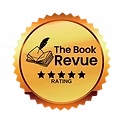Reviewer: Jamie Michele (Readers’ Favorite) Rating: 5 stars (out of 5)
Bond of the Brotherhood by J. David Dutch is a remarkable account
of adolescence shaped by shifting circumstances during the early
1980s. Dutch connects the recession, immigration changes, and
demographic movements with everyday moments of family and
community life, showing how larger events influence seemingly
ordinary experiences. The book captures teenage curiosity through
small acts of defiance and experimentation, whether at the hockey
rink or while savoring music with friends. Sensory details give
schoolyards, hillsides, and concert arenas a striking presence, from
sunlight and bourbon to stage lights and smoke. When David faces
the threat of arrest, his panic contrasts with James’ steady
influence, revealing how lived experience can guide someone
unprepared for risk. Dutch presents these moments with honesty
and accuracy, creating a story that feels immediate, textured, and
filled with meaning.

Reviewer: Mary Clarke (Readers’ Favorite) Rating: 5 stars (out of 5)
Reading this book was a great experience. I learned a lot, and it
definitely shapes the way I would nurture my kids during their
teenage years. What stood out the most was the way David told the
good and bad parts of his teenage years with openness and without
trying to make it look perfect. This writing approach showed clearly
the energy of being young and the real-life consequences of risky
choices. David paid attention to detail in his writing; the way he
described the music, concerts, streets, and local hangouts brought
the story to life and made it feel grounded. This book got me so
emotional; the loss the group faced and how that experience made
their friendship grow even stronger was lovely. I recommend Bond
of the Brotherhood by J. David Dutch to readers who would love to
know what 1980s teenage life was like.

Reviewer: Asher Syed (Readers’ Favorite) Rating: 5 stars (out of 5)
Bond of the Brotherhood by J. David Dutch examines adolescence in
1980s suburban Canada with sharp attention to social rhythms, and
it honestly felt a bit as if The Wonder Years was reimagined for a
later decade. Dutch writes with a steady, observant hand, and
whether this is an actual memoir or fiction based on life, or the
blurry line between both, it’s good. Really good. It’s also
courageous, and as a man in a similar age group, there’s stuff
Dutch shares that not a lot of people would be willing to do. With
the volume of books I read based on real life, it can be easy to
forget that, until I read one that goes the length. I respect that, the
writing, and the author. The result of all this together is a
deliberate, thoughtful account that remains with the reader
because of its careful ability to tap into those depths. I don’t have a
musical bone, but I do have a heart, and this book softened it a
little. Well done.

Reviewer: William Reimers (The Book Revue) Rating: 5 stars (out of 5)
J. David Dutch’s Bond of the Brotherhood presents a poignant and resonant portrayal of resilience, identity, and youth, all set against the backdrop of 1980s Toronto. He transforms a deeply personal journey into a universal narrative, capturing the challenges and triumphs of growing up in a time and place characterized by cultural change, racial tension, and economic uncertainty with clarity and emotional depth.
Dutch’s writing is both tender and unflinching, retaining the discipline of crafted prose while evoking the immediacy of memory. His narrative voice is both lyrical and honest, seamlessly integrating moments of strength and vulnerability. The book’s structure is deliberate, transitioning from intimate reflection to broader social observation with rhythm and balance. In this manner, the prose encapsulates the tension that a young man experiences as he navigates the inner world of his own development and the outer world of evolving community dynamics.
The central themes of the book are the pursuit of meaning, perseverance, and belonging. Dutch elucidates the transformative influence of music, sport, and friendship, illustrating how these connections serve as lifelines for a child of a single mother as he navigates his place in the world. His portrayal of Toronto during this era, which is alive with energy yet shadowed by division, is the foundation of the narrative, as it is rooted in a vivid sense of time and place. As a result, it serves as both a personal memoir and a cultural snapshot.
The importance of Bond of the Brotherhood lies in its ability to captivate the reader by evoking the universality of growing up and the specificity of Dutch’s experiences. It fosters empathy, reflection, and a profound comprehension of the factors that impact the life of a young person. Readers are reminded of the resilience of the human spirit and the quiet, enduring strength of the ties that sustain us.
J. David Dutch has composed a memoir that is noteworthy, characterized by honesty, courage, and grace. The Bond of the Brotherhood is not merely a recollection of a past life; it is an invitation to reflect on our own and the ways in which memory, identity, and brotherhood influence our identities.
